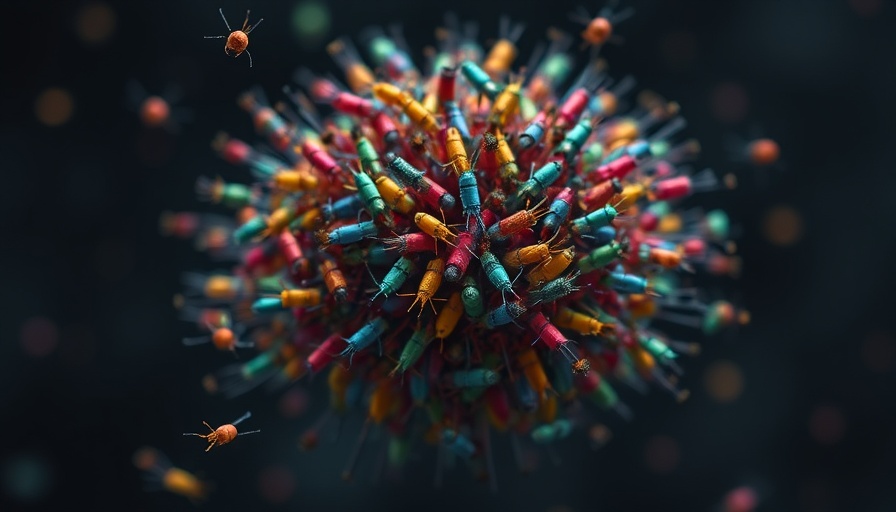
The Dawn of a Robotics Revolution: Exploring GR00T-N1
Humanoid robotics is on the brink of a major transformation thanks to NVIDIA’s groundbreaking GR00T-N1, an open foundation model set to revolutionize how robots learn and perform tasks. Unlike traditional systems, which rely on expensive and often limited datasets, GR00T-N1 leverages advanced simulation technology to create rich, labeled training environments. This innovation means we can expect robots not only to be super cute but also capable of understanding and interacting with the world more effectively.
In NVIDIA’s New Robot AI: Insanely Good!, the discussion dives into the innovative GR00T-N1 model, exploring key insights that sparked deeper analysis on our end.
The Limitations of Traditional Robot Learning
Historically, robotic training was a cumbersome endeavor. Companies like OpenAI retreated from the field due to the high costs and massive data requirements. Training a robot involves more than just feeding it images or text; it requires labeled actions and interactions in a physical space, which is time-consuming and impractical. GR00T-N1 addresses this by utilizing digital environments to simulate a factory, allowing robots to learn new skills rapidly without the usual constraints.
The Game-Changing Omniverse Technology
At the heart of GR00T-N1's capabilities lies NVIDIA's Omniverse platform, which can generate highly accurate 3D environments. Imagine creating a virtual factory that takes mere days to assemble, where robots can practice and learn. This environment ensures that the robots train on realistic physics, which is crucial for their adaptability in the real world. Additionally, the feasibility of simulating, say, 25 years of environmental interactions in just one day is a remarkable advance, offering limitless training possibilities.
Harnessing Unlabeled Internet Data
Even with such innovative techniques, the need for labeled data persists. However, GR00T-N1 introduces a radical shift: it teaches AI to label its training data autonomously. By analyzing unlabeled video footage, the system can deduce context, movements, and scenarios. This capability not only streamlines the data preparation process but also enhances the training database, allowing for greater learning diversity and efficiency.
Dual-Level Thinking: Combining Vision and Action
A pivotal feature of the GR00T-N1 model is its vision-language component from a previous algorithm, Eagle-2. This dual-thinking approach enables robots to reason about their actions while simultaneously processing real-time inputs. The combination of a slower, reasoned approach and a faster, action-oriented system provides a more holistic understanding of tasks. Instead of fumbling through actions without context, GR00T-N1 can now think, plan, and execute seamlessly.
Quantitative Advances in Robotics
The improvements that GR00T-N1 presents are substantial. Traditional efforts in humanoid robotics achieved a 46% success rate at best, but the latest model boasts a significant leap to 76%. This remarkable enhancement not only signifies progress in technology but also highlights the collaborative spirit of researchers globally who build upon one another’s knowledge.
Bridging Challenges and Opportunities
While GR00T-N1 showcases vast potential, it is essential to acknowledge its limitations. Current capabilities revolve around short tasks and are not yet equipped for complex, multiphase operations like household chores. However, its open model supports customization, meaning that innovative entrepreneurs can fine-tune GR00T-N1 to suit specific requirements, further extending its applicability.
Why Business Owners Should Care
For business owners, the implications of GR00T-N1 are clear. Companies can leverage this technology to enhance operations, improve efficiency, or even create new products. As these robots learn to act more intelligently in various environments, industries such as manufacturing, logistics, and even customer service may see unprecedented advancements. Imagine having robots that autonomously adjust to changing conditions while effectively executing their roles.
As an innovative business owner, the opportunity to use GR00T-N1 can seem daunting but is necessary for future growth. The technology is now accessible, allowing even those without extensive resources to begin exploring AI integration. Don't wait for others to seize the first-mover advantage; GET AI WORKING FOR YOU TODAY!
 Add Row
Add Row  Add
Add 




Write A Comment